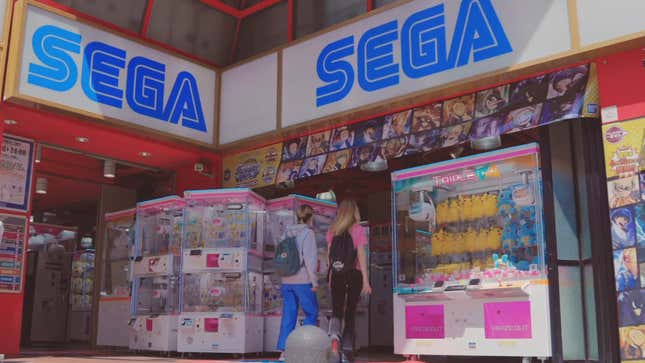
After opening in July 1993, the nine-story Sega Ikebukuro Gigo became a neighborhood landmark. On September 20, the arcade will cease operations and close.
This brings to a close 28 years of gaming history.
The arcade made the official announcement via Twitter, thanking patrons for their years of service. The reason for the closure is that the arcade’s fixed term building lease agreement has ended as the building is set to undergo renovations.
Over the years, the exterior has changed a number of times, going from yellow during the 2000s to red in 2013, a color that covered the arcade in the late 1990s. (The original Gigo design, however, was far more radical.)
The game center has long been a test location for new arcade games in Japan. But more recently, it has increasingly appealed to tourists, with Sega installing a taiyaki stand on the first floor. Tourists are currently banned from entering Japan due to the coronavirus pandemic. This also means that tourists who last visited the arcade might not have another chance to go again because, as of writing, it’s unclear when they’ll be allowed back into the country.
Last year, another landmark Sega arcade, the company’s Akihabara 2nd arcade, shuttered. Famous for its Sega emblazoned escalators, the arcade did not give an official reason for closing.
Arcades are struggling during the pandemic, with the face of Akihabara changing due to the shuttered game centers. Sega, one of the most dominant forces in the industry, even sold off 85 percent of its arcade business last November.
“The fact that even big arcades are going out of business one after the other shows the situation’s severity,” Morihiro Shigihara, a journalist and former arcade manager, told AFP.
Even before the pandemic, the arcade business in Japan had been struggling. In 1989, for example, there were 22,000 game centers in the country. But by 2019, that number had dropped to 4,000. Now, that number is certainly lower, with yet another Tokyo landmark vanishing.